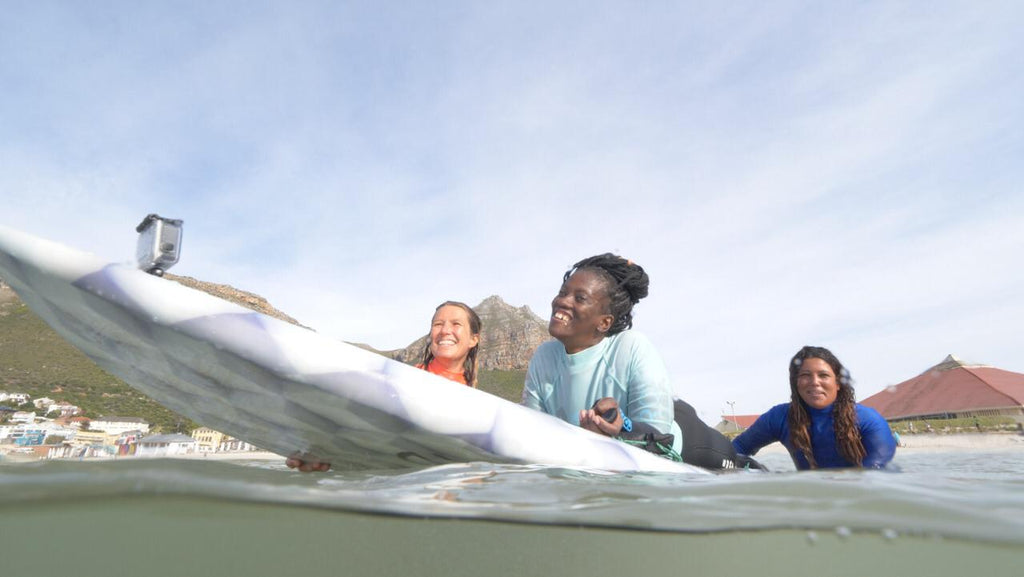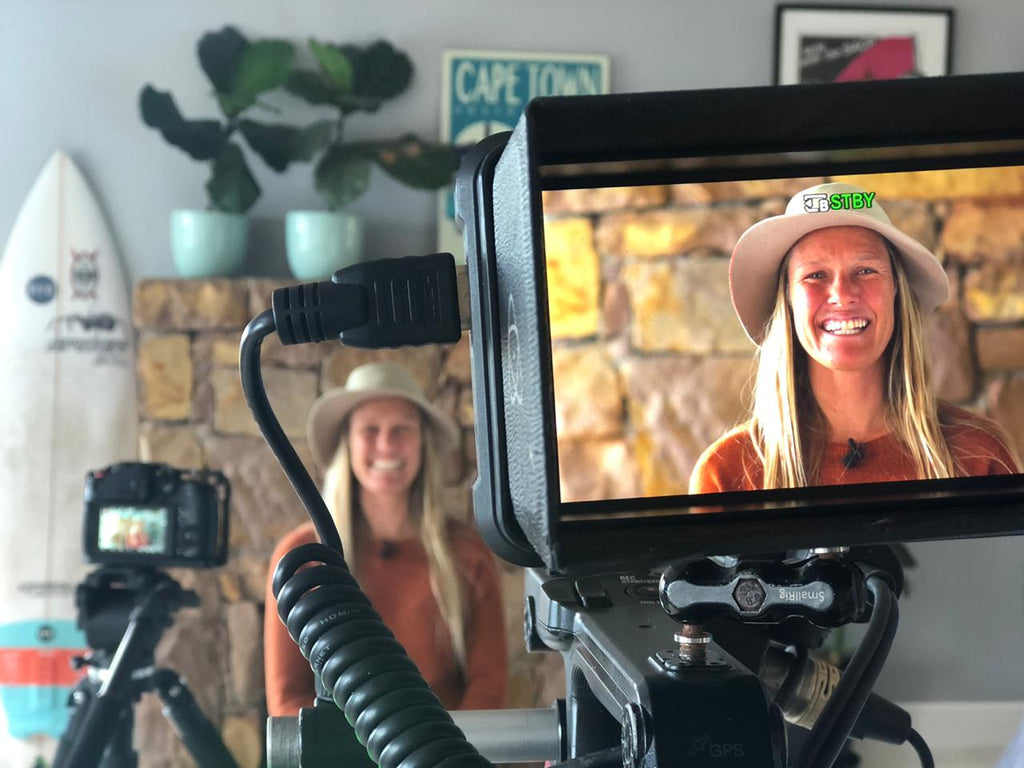Tasha Riding the Wave of Change
How one national team coach and a disabled girl bring a story of hope -covered by CNN.
Swimming upstream takes guts. Bringing change takes passion. Believing everyone can surf starts with a dream, becomes a calling and takes one tenacious Tasha Mentasti!
She spreads the stoke of surfing to those who might need it most, promoting it as a therapy to the disabled, troubled and stressed! She radiates good vibes – so it is no surprise that she’s part of our RYD tribe.
Coming from a pro surfing background (having surfed for almost 30 years) she also coaches the South African Para surfing team, builds the female surfing community and was recently featured on CNN for her changemaker qualities.
We caught up with her for an extra dose of true surfing inspiration:
You’ve been surfing since you were 11 years old, competed in the pro surfing arena and now you're a surf coach. Tell us about your journey in all of this?
I am so lucky to share my love for the ocean with my dad who taught me how to surf. Both my younger sister and brother also surf. In fact, we’ve always said: beach days are the best days!
I’ve been fortunate enough to transition from a pro surfer (competing on the WSL Qualifying Series and representing South Africa at the ISA World Surfing Championship) to carving a career within the surf event industry as an Event Director, Contest Director or Commentator. I’ve always been very passionate about surf coaching, am an internationally recognized surf Instructor (ISA Level 2) and have had the honor of being the first female coach to represent South Africa at a World Surfing Champs.
I currently run all of Surfing South Africa’s (SSA) surf education courses around the country – coaching the coaches and being able to give back to the sport that has given me so much.
Your surf coaching focuses on surf therapy as well?
We use surfing as a form of adventure or outdoor therapy: from simply reducing stress levels and boosting confidence, to amazing health and rehabilitation benefits for those with more specific needs.
It all started when I met Dries Millard, who became paralyzed from the chest down due to a car accident. He attended one of the surf courses I was running in Cape Town. After meeting Dries and working alongside SSA – we held the first ever Adaptive Surf clinic in Cape Town in Dec 2011. The passion was born and the rest they say is history!

What exactly is adaptive surfing?
People who are challenged with disabilities adapt their style, stance or technique of surfing, in order to catch and ride waves. Some people lie down on their board due to their disability, while others still stand. I also coach people who are visually impaired and blind.
The ocean doesn’t judge anyone – everyone is equal in the water.
You were recently featured on CNN’s African voices changemakers. What was that all about?
I am very grateful for the opportunity to share our stories on a global platform.
It also features Noluthando, who was selected to represent South Africa at the 2020 ISA World Para Surfing Championships which were held in San Diego, California. Nolu needs assistance in the water due to her disability, she cannot paddle into waves by herself. She has a minimum of 2 surf coaches every time she surfs. I was traveling with the team as Head Coach.
Noluthando seems like such a special girl – how did you encourage her to get into the water and from there, achieve a silver medal at the Paralympic games?
It has been a long journey for Nolu with adaptive surfing being so new.
When Nolu first met me at the beach in 2014 she thought I was just a crazy white woman with too much energy. Nolu couldn’t swim and had never been in the ocean.

What is the biggest obstacle you face in coaching the South African Para Surfing team and/or disabled people?
Financial support and funding. Everything we do is self-funded. From traveling to competing, booking accommodation etc. It is all covered by each team member, coaches included.
We are looking for businesses and brands to get involved and help create awareness in order to grow the sport.
Let’s talk about the misconceptions that people and other surfers have when it comes to para surfing?
When people hear that I train, or coach disabled people in surfing – the first question they ask is: “But how do they stand?”. Para surfing or adaptive surfing, as it is more commonly known, is being able to adapt your equipment and style in order to still be able to catch waves and ride them to the shore. It doesn’t matter how you do it. Lying down on your surfboard still means you’re able to catch waves and experience the surf stoke!
Both you and Noluthando are breaking grounds – she is the first Xhosa female winning a silver medal in a surfing contest and you being the only female coach at the ISA World Para Surfing Championships.
It is an honour to be a part of this groundbreaking sport and I look forward to help growing it globally.

Sisterhood (and building the female surf tribe) means a lot to you – why?
Because I never had that when I was growing up. I had to surf with the boys, compete against the boys and have always felt that I didn’t have the backing I needed.
I hope to change that and always offer a safe space for women to surf and express themselves on waves and in the ocean. It’s exciting to see female surfing evolving!
Noluthando said: “We can be what we wanted to be if we push harder.” Giving someone the ability to dream again is such a blessing, and you radiate hope to these people. How can we as a community support that?
Please support us by sharing our story and getting in touch via social media channels.
@TashaMentasti | surftherapysa@gmail.com | +27 83 225 4900

You can also show your support and donate, each donation goes towards helping offer FREE access to surf therapy sessions through my registered charity – Find Your Stoke – www.findyourstoke.org
Keep on bringing the change – the world can all use a bit of surf therapy and a touch of Tasha's passion and energy!
You can watch the full CNN feature HERE.
Photo credits: Jason Boswell. Feature image photo credit: Kim Bouchier
